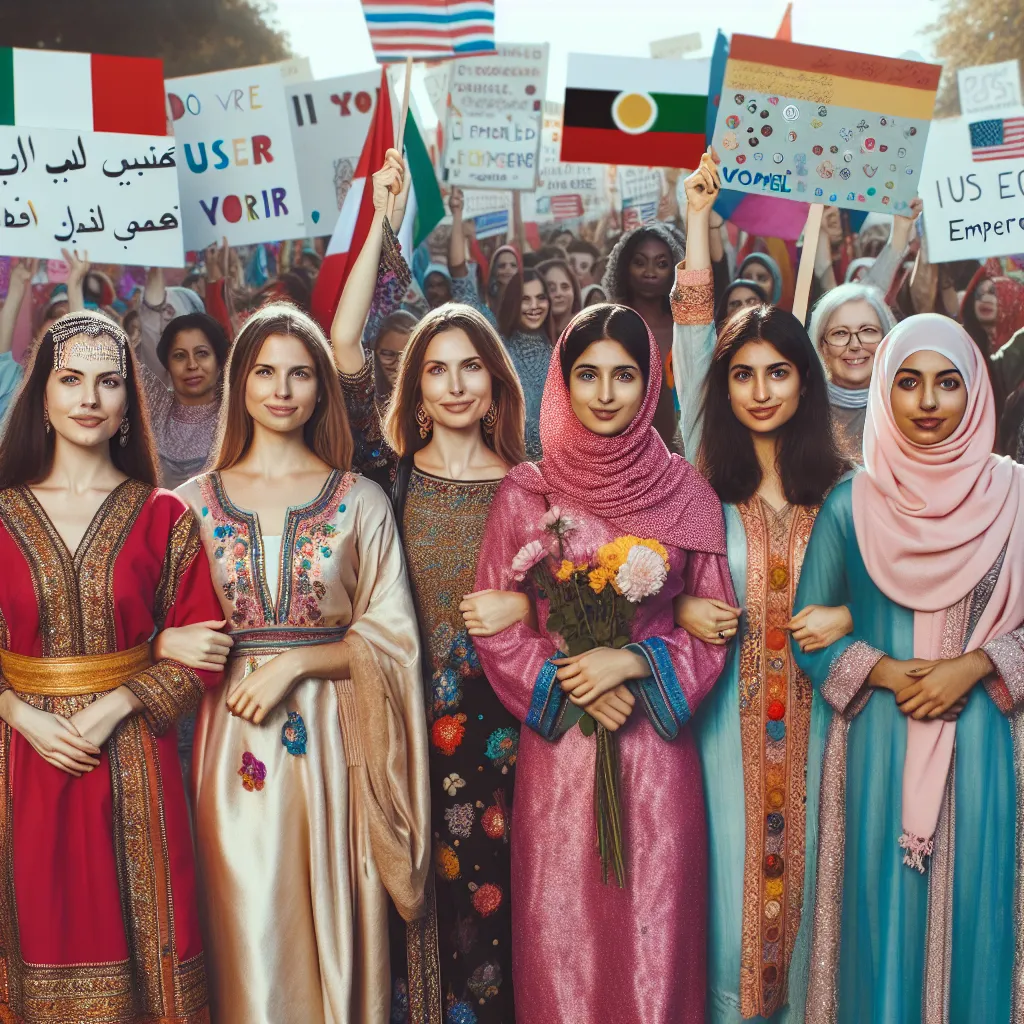
The Rise of Female Empowerment Movements: A Global Perspective
The Evolution of Feminist Movements Across Continents
In recent years, the world has witnessed a remarkable evolution of feminist movements across continents, as women from different cultural, social, and economic backgrounds have come together to demand gender equality and empowerment. From the #MeToo movement in the United States to the “Ni Una Menos” protests in Latin America, and the “Nirbhaya” movement in India, women have been at the forefront of advocating for their rights and challenging oppressive patriarchal structures.
These movements have had a significant impact on raising awareness about issues such as sexual harassment, gender-based violence, and unequal treatment in the workplace. The rise of social media has played a crucial role in connecting women globally and amplifying their voices, leading to a more interconnected and intersectional approach to feminist activism.
In Africa, grassroots movements like “Take Back the Tech” have emerged to address the intersection of gender and technology, advocating for digital rights and online safety for women. Meanwhile, in the Middle East, women have been pushing the boundaries in the fight for their rights, challenging discriminatory laws and traditional gender roles.
In Asia, the “One Billion Rising” campaign has gained momentum, calling for an end to violence against women and promoting gender justice. Additionally, the LGBTQ+ rights movement has been an integral part of the feminist struggle, advocating for the rights of women and gender-nonconforming individuals around the world.
As feminist movements continue to evolve, it is crucial to recognize the diversity of experiences and struggles faced by women globally. By acknowledging the intersectionality of gender, race, class, sexuality, and other social factors, these movements are working towards a more inclusive and expansive vision of female empowerment.
Female Leadership and its Impact on Societies Worldwide
Female empowerment movements have been gaining traction across the globe, bringing to light the crucial role of female leadership in shaping societies. The rise of female empowerment movements has sparked a significant shift in societal norms and power structures, leading to a reevaluation of traditional gender roles and the increased representation of women in leadership positions.
One of the key aspects of female empowerment movements is the promotion of female leadership in various sectors, including politics, business, and social initiatives. The impact of female leadership on societies worldwide is substantial, as it brings diverse perspectives, innovative solutions, and a more inclusive approach to decision-making processes. Studies have shown that companies with a higher proportion of women in leadership positions tend to achieve better financial performance and are more likely to prioritize social and environmental responsibility.
Furthermore, female leaders often serve as role models for future generations, inspiring young girls to pursue their ambitions and break barriers in traditionally male-dominated fields. The visibility of female leaders in positions of influence contributes to challenging stereotypes and dismantling systemic gender biases, creating a more equitable environment for all individuals.
From the grassroots level to international platforms, female empowerment movements continue to drive positive change by advocating for policies that support gender equality, providing mentorship and networking opportunities for aspiring female leaders, and fostering a culture of empowerment and respect. The global perspective on female leadership underscores the undeniable impact of women in leadership roles, signaling a progressive shift towards more inclusive and equitable societies.
In conclusion, the rise of female empowerment movements has propelled the issue of female leadership to the forefront of global discourse. As societies increasingly recognize the value of diverse leadership and the significant contributions of women, it is evident that female empowerment movements will continue to shape a more inclusive, balanced, and prosperous future for all.
Empowering Women: Challenges and Triumphs in Different Cultures
Empowering women has become a global movement, with women around the world striving to overcome cultural, social, and economic challenges to achieve equality and independence. However, the challenges faced by women in different cultures vary significantly, requiring unique approaches and solutions.
In many Western societies, the focus of female empowerment movements has been on issues such as closing the gender pay gap, promoting women in leadership positions, and combating sexual harassment in the workplace. These movements have made significant strides in raising awareness and advocating for policy changes to support women’s rights.
Conversely, in many traditional or patriarchal societies, the challenges faced by women are deeply rooted in cultural and religious norms. Empowering women in these cultures often involves navigating complex social structures and overcoming deeply ingrained gender stereotypes. It requires a delicate balance of preserving cultural traditions while challenging oppressive practices.
In some parts of the world, access to education and healthcare are significant barriers to female empowerment. Women may face limited opportunities for education or healthcare due to systemic inequalities or cultural beliefs. Empowering women in these contexts involves addressing structural inequalities and promoting access to essential services.
Regardless of the cultural context, the triumphs of female empowerment movements are evident. Women are increasingly stepping into leadership roles, starting businesses, advocating for their rights, and inspiring change in their communities. The global perspective on female empowerment highlights the diverse challenges women face and the innovative strategies being employed to overcome them.
By acknowledging and understanding these cultural nuances, the global movement for female empowerment can continue to make meaningful progress towards gender equality for all women, regardless of their cultural or societal context.


